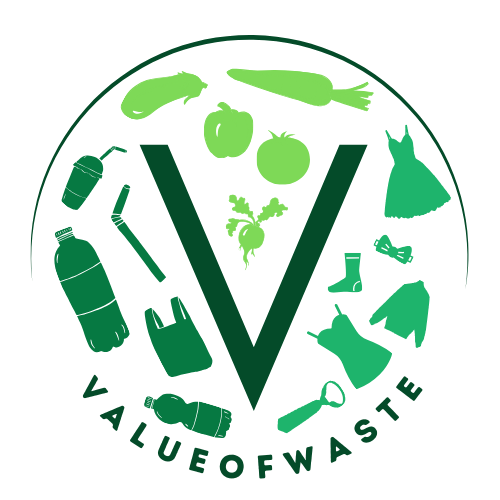Welcome to the last part of our zero food waste journey. In this last chapter I would like to dive into organic waste in general and how to make the most out of that waste. So come along as we drift a little bit away from the kitchen and into other areas of our homes.

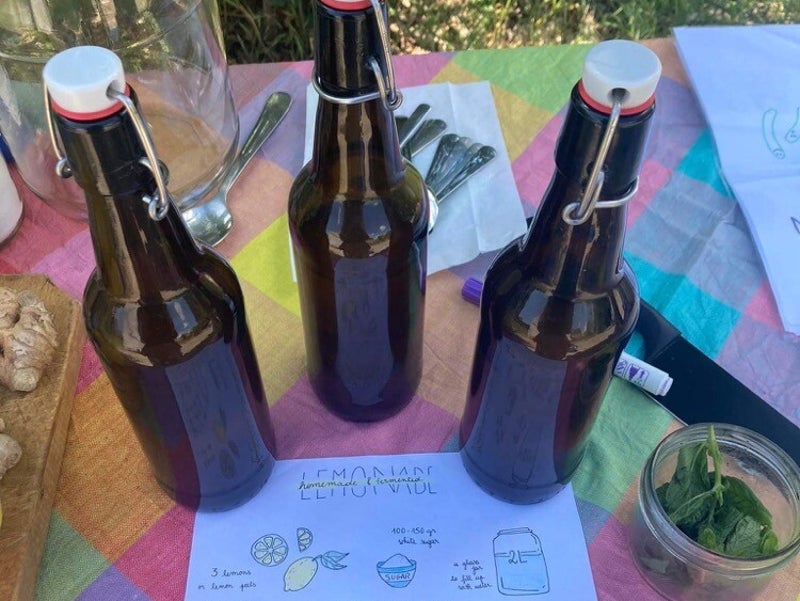
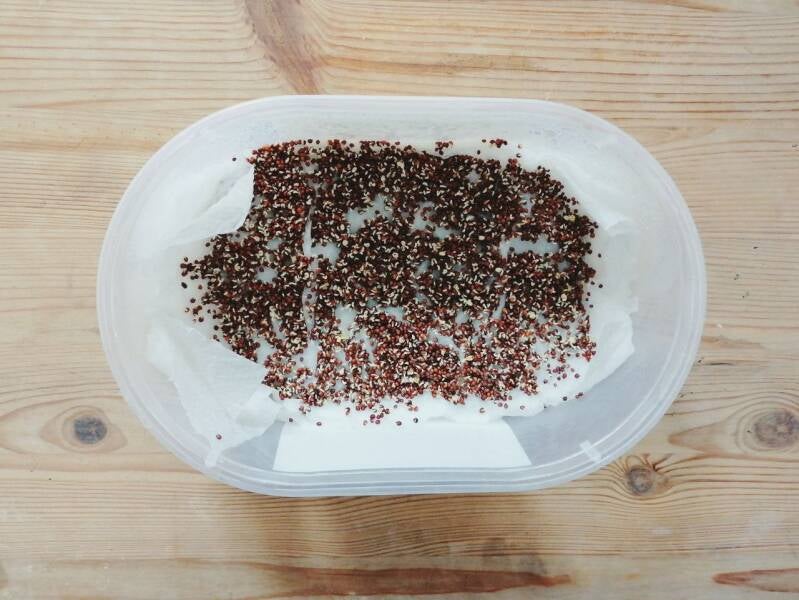
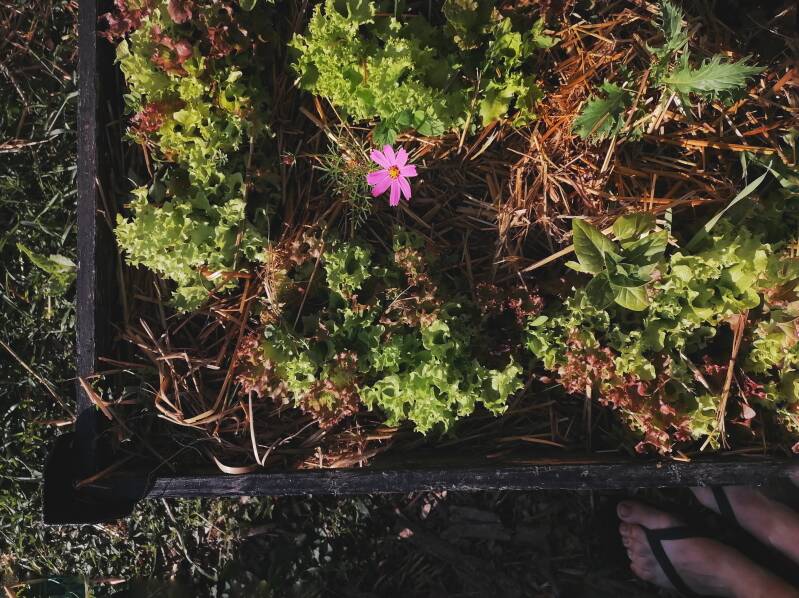
Lemon peels
Before we step out of the kitchen, I have one last recipe to share with you. It is one of my favorite zero waste tips for lemon peels, it is super easy and it tastes so good! It's a fermented lemonade.
All you need is: the rinds of 3 lemons (juiced or not), 100-150gr of white sugar and a glass jar with a 2L capacity to fill up with water. Optionally you can add a little bit of ginger to speed up the process.
Put all the ingredients in the jar and mix with a wooden spoon. Cover with a cloth and let ferment 3 to 5 days. Every day mix with a wooden spoon. When the liquid is fuzzy, you can filter and put the lemonade into pressure resistant bottles (old beer bottles or plastic soda bottles). Ferment 2-3 more days in the bottles to get a carbonated drink. Make sure you open the bottles to release the gas once or twice a day to prevent explosions.
Then it's ready to drink. Consume within two days if kept at room temperature or 2 weeks in the fridge.
Little tip, if it's too sweet for you give it a bit more time, the fermentation will process the sugar. If it's too vinegary add some sugar and ferment 2 more days.
Another good use for all citrus peels is to infuse them in white vinegar for a couple days, filter it out and fill a spray bottle with half infused vinegar half water to make a natural surface cleaner.
As always with citrus I recommend using the peel of bio fruits since the peel might otherwise contain large amounts of pesticides.
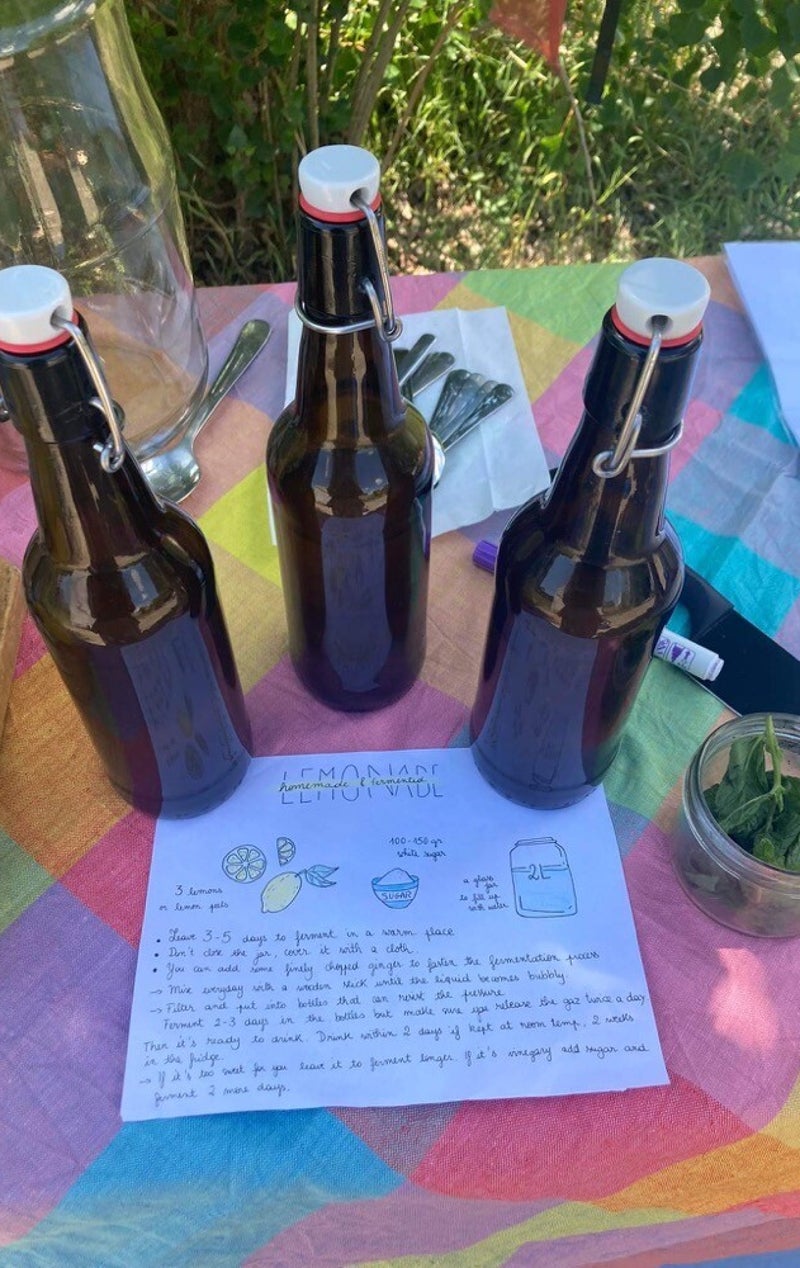

Coffee grounds
Coffee grounds can be used in many different ways around your home and garden. Here are a couple ideas:
- Deodorizer: dried coffee grounds put in an open container or bag can absorb odors in areas such as the fridge, closets or shoes.
- Exfoliant scrub: mix coffee grounds with a bit of coconut or olive oil to create a natural exfoliant for your body, the coffee grounds will help you scrub away dead skin cells.
- Fertilizer: They can be added in to your compost to fertilize it, they are particularly beneficial to acid loving plants like tomatoes or blueberries.
Tea leaves
Like coffee, tea is a daily waste in most homes and can be used in many ways. Some examples:
- Natural dyes: certain types of tea like black or hibiscus tea can be used as a natural dye for fabrics. Boil the used leaves and use the liquid to dye paper or fabric! For it to last longer you might need to prep the fabric so I recommend checking out specific tutorials before diving into it.
- Garden pests repellent: Scatter dried tea leaves around the garden to deter some pests like ants and caterpillars. The caffeine in the tea can act as a natural insecticide.
- Natural hair rinse: with cold brewed herbal teas like camomile, pour it over clean damp hair after shampooing and leave it on for a few minutes before rinsing. It will make your hair shiny and enhance natural highlights.


Egg shells
Egg shells are another common daily organic material found in our bins that has many purposes.
-Seed Starter: shells can be used as a biodegradable seed starter, fill the half egg shell with soil, plant the seed. Once the seedlings are ready transplant them along with the shell into the garden.
- Sidewalk chalk: clean and dry eggshells thoroughly, crush them into fine powder. Mix the powder eggshell with flour and water to create a natural sidewalk chalk. Pour the mixture into molds and let dry completely before using it for drawing onto sidewalks or pavement.
- Gardening: as a pest control, crushed and sprinkled around the stem of plants, eggshells can deter pests like slugs, snails and cutworms.
- Calcium Supplement: crushed eggshells can be added to animal feed as a calcium supplement, for example if your chicken's egg shells are not hard enough.
Compost!
Composting is one of the best ways to put organic waste to use. It is a huge topic and there are so many options out there that we could do a whole journal only about that. So I thought I would keep it simple and offer you a list of dos and don'ts of composting that is valid for both indoor and outdoor compost.
By following these dos and don'ts, you can create healthy, nutrient-rich compost for your garden.
Dos:
1. Balance Green and Brown Materials: Use a mix of green (nitrogen-rich) and brown (carbon-rich) materials for optimal decomposition. Greens include fruit and vegetable scraps, while browns include leaves, straw, and paper.
2. Aerate the Pile: Regularly turn or aerate the compost pile to bring in oxygen and speed up decomposition.
3. Monitor Moisture: Keep the compost moist, like a sponge. If it's too dry, decomposition slows; if it's too wet, it becomes smelly and attracts pests.
4. The smaller the better: Chop or shred larger materials to speed up decomposition and create a more uniform texture.
5. Layer Materials: Alternate layers of green and brown materials to create a balanced compost pile.
6. Use a Bin or Container: Use a compost bin or container to contain the pile and keep it neat. Indoors, consider a small bin designed for kitchen scraps.
Don'ts:
1. Meat or Dairy: Avoid adding meat, dairy, or oily foods to your compost, as they can attract pests and produce odors.
2. Avoid Sick Plants: Avoid adding plants that are diseased or infested with pests, as this can spread the disease or pests in your compost.
3. Avoid Pet Waste: Pet waste can contain harmful pathogens and should not be added to compost piles intended for vegetable gardens.
4. Avoid Synthetic Materials: Avoid adding synthetic materials like plastic, glass, or metal, as they don't break down and can contaminate the compost.
5. Don't Overload with Citrus: While citrus peels can be composted, too much can make the compost too acidic.
6. Don't Neglect Turning: Neglecting to turn the compost pile can lead to anaerobic conditions, slowing down decomposition and causing unpleasant odors.
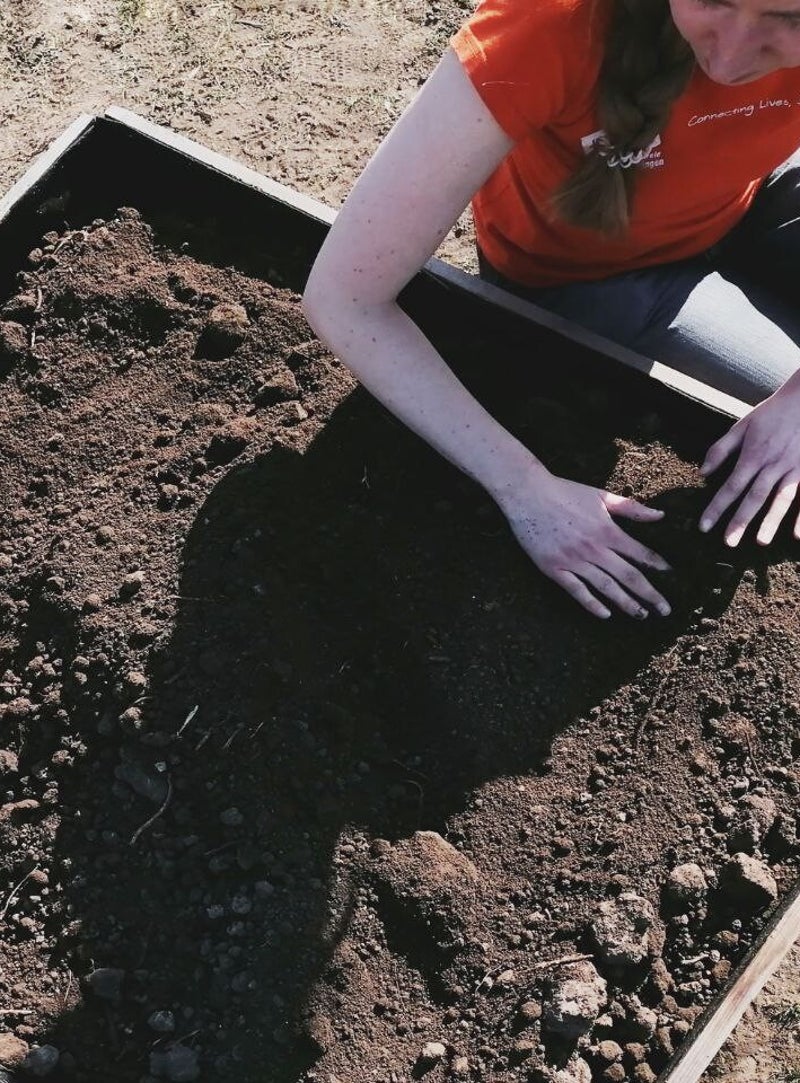
Garden Waste
Composting isn't just about food leftovers! All organic materials around us have value and the energy they represent can be beneficial to us and our environments. So don't get rid of these garden leaves, compost them!
You can also put dead branches and trims to use by grinding them into mulch to make paths around your garden or protect the soil around your plants.
Share your Waste
You don't have a garden, you're not sure you're brave enough to start composting indoors yet but still want to do something about your organic waste? Don't worry, I have a solution for you!
One man's trash is another man's treasure and that is exactly the concept of this app. It connects people who are looking for organic waste with people who are trying to get rid of it all around the world. Give it a try, you might make new friends in your area and find ways to put your organic waste to good use.
Click the photo to access the link to the website.

Growing from seeds
Did you know you can harvest the seeds from self-grown vegetables?
Here's how to do it!
1. Choose mature, healthy vegetables from which to harvest seeds. Make sure they are fully ripe and begin to naturally dry out. This allows the seeds inside to fully mature.
2. Cut open the harvested vegetables and carefully remove the seeds from the flesh. For some vegetables, like tomatoes or peppers, this may involve squeezing or scooping out the seeds. For others, like beans or peas, you may simply need to shell the pods to extract the seeds.
3. Rinse the seeds under running water to remove any remaining flesh or pulp. You can use a fine mesh strainer to help separate the seeds from any remaining flesh.
4. Spread the cleaned seeds out in a single layer on a paper towel. Place them in a warm, dry location with good air circulation to allow them to dry completely. This can take a few days to a week, depending on the type of seed and the environmental conditions.
5. Once the seeds are completely dry, transfer them to labeled envelopes or small containers. Be sure to label each container with the type of vegetable and the date of harvest. Store the seeds in a cool, dry place until you're ready to plant them in the next growing season.
By saving your own seeds you help maintain biodiversity and self-sufficiency in your garden!
Last challenge: keep the organic waste out of the landfield!
Here it is, my last challenge for you (on this topic at least). Try composting! Whether you try to make an indoor worm compost, build a compost box in your garden or connect with people in your area who compost, give it a try so that organic waste can totally disappear from your trash bin!

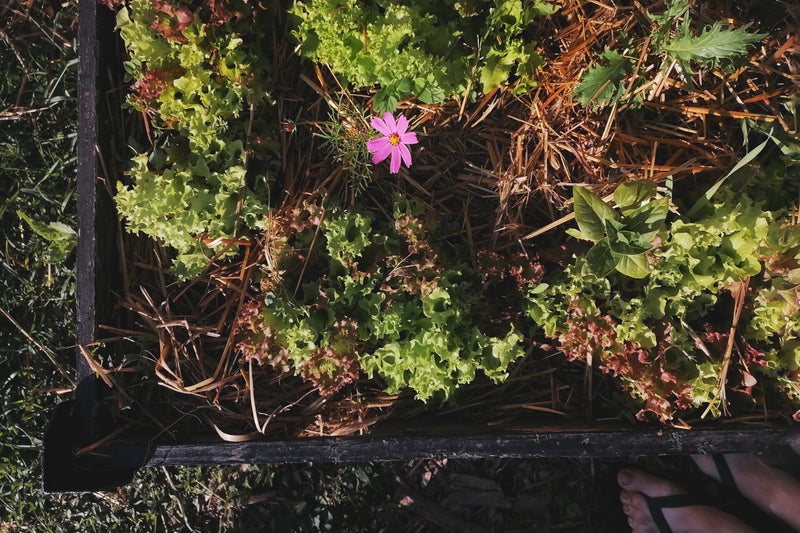
In order to assess the quality of this journal we would like to hear from you. Don't hesitate to leave comments to let us know what we could do better.
I hope you enjoyed these four journals on the topic of food & organic waste and that you learned some useful things you can implement at home. This is the last journal you will get from me as I will be passing the word on to my colleagues from KNOF who will share with you tips and tricks on how to reduce plastic waste at home for the next four months.
I am very excited to learn from them and see what I can also do!
Mathilde
Author & Editor
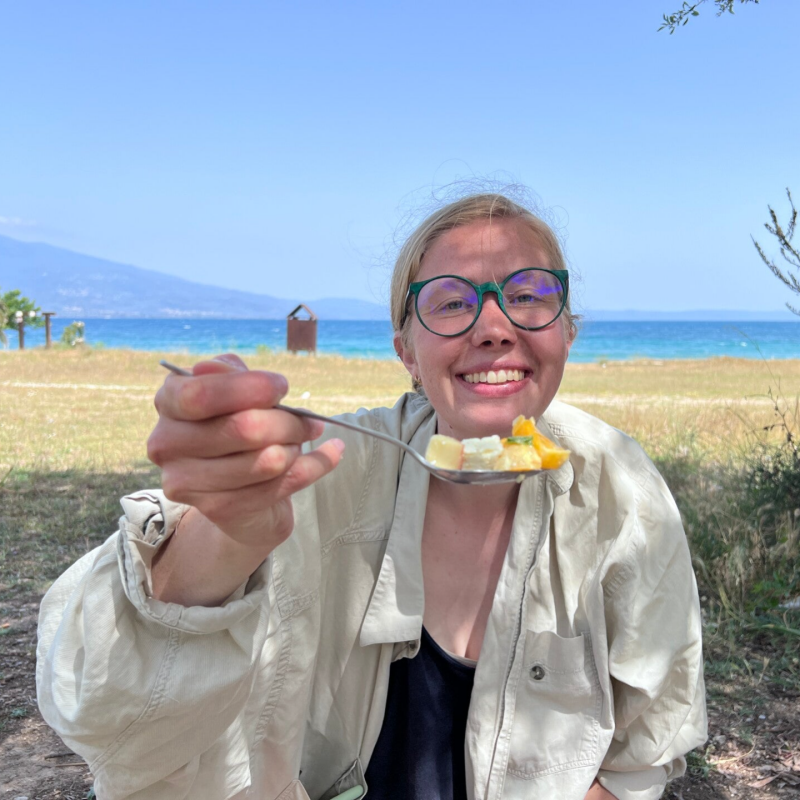
What's next? Plastic Free July!
By making small changes individually, we collectively make a massive difference to our communities. Join us on the journey where we can start with a plastic-free July and we can make it plastic-free all year around!
''Think about it. Why would you make something that you’re going to use for a few minutes out of a material that’s basically going to last forever, and you’re just going to throw it away. What’s up with that?'' (Jeb Berrier, Bag It)
To get started we suggest you to watch this documentary!
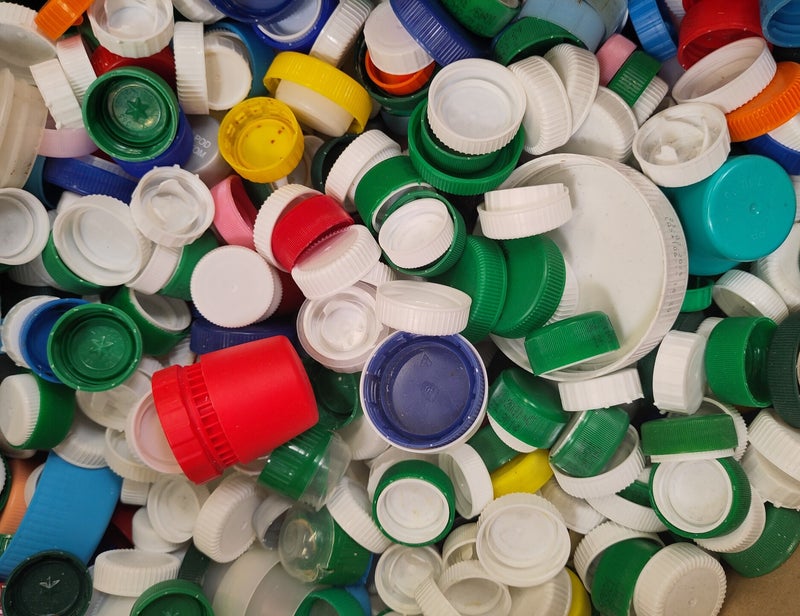
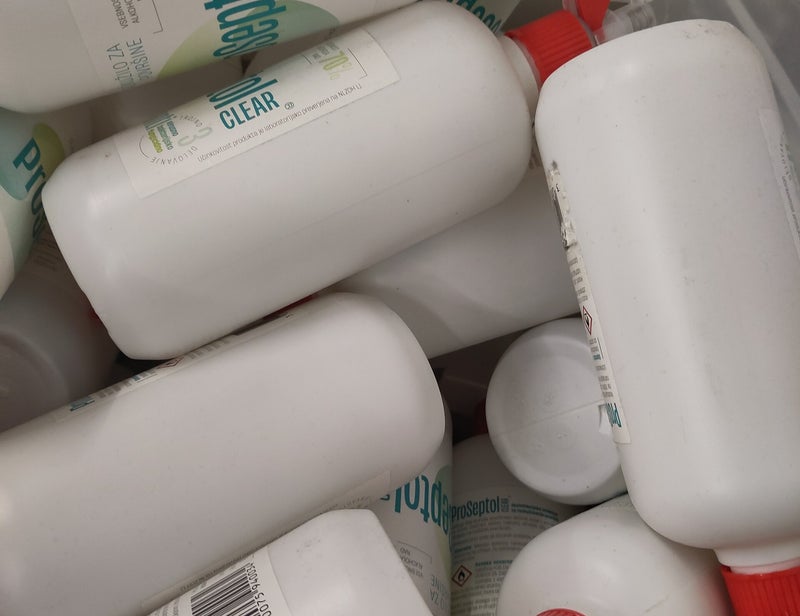
You can't wait to dive into the topic and meet other people involved?
Here are some local events that you can join this month!
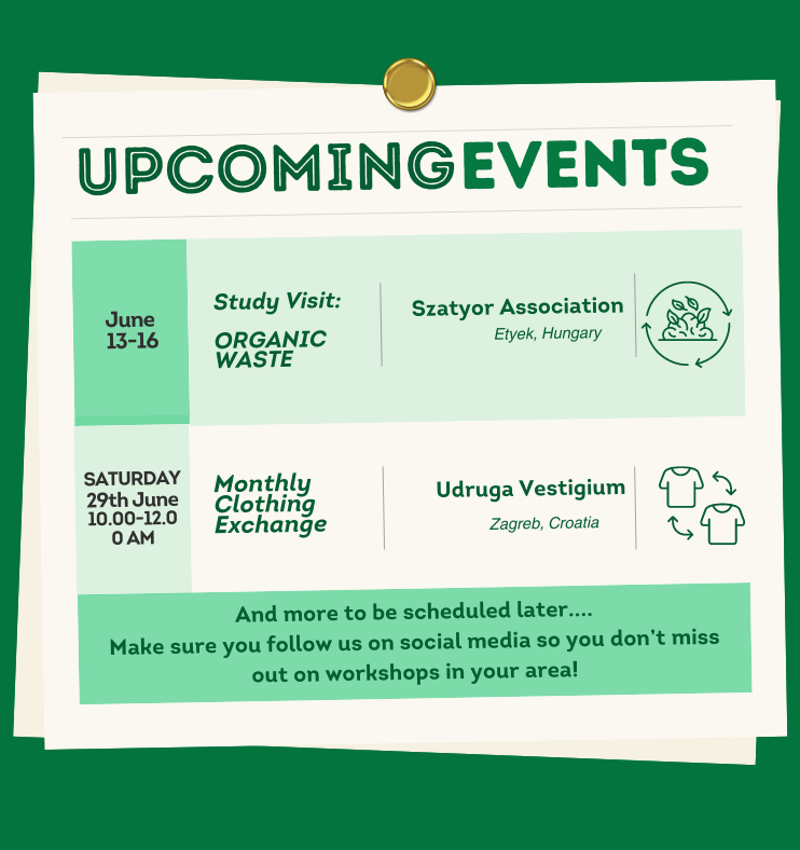
Once a month Vestigium welcomes its community for a clothing exchange party and a new textile upcycling workshop! Join them!
This month the Value of Waste project is visiting Hungary. We are still missing some participants from Slovenia so if you live there and you are interested in learning about how to value organic waste and you want to join us you can still apply at szatyorprojects@gmail.com.
You were wondering what else we've been up to? We had some local events!
Events at Vestigium
For over two years, we have hosted transformative clothing exchanges that bring our community and guests together. These impactful gatherings emerged from a shared desire among community members to cherish and repurpose clothing that no longer adorns us. Our events have left an indelible mark on our community, enriching the lives of both members and visitors alike. Join us at our upcoming exchange and experience the power of sustainable fashion firsthand!
Events at Szatyor
Last month Szatyor celebrated both its 12th birthday and worms! With a gathering that was all about composting, all about the VALUE of the amazing organic waste! The program included various activities such as a DIY worm compost preparation, making seedbombs, a presentation about indoor composting as well as many other composting tips and tricks. It was just like every year beautiful to see our community come together, fill up the Szatyor garden and celebrate nature!
If you aren't a subscriber yet, you enjoyed this journal and want to be notified when we release the next ones: It's not too late!
